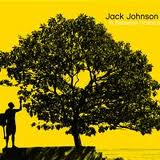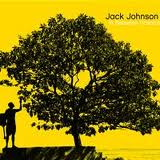Look around and what can people see? The nation running around in order to fulfill the things that make them happy? Every day people walk through life looking for an answer to what his or her lives mean. They are all in search of the answer to the basic questions “why are humans here” “what am I doing with my life”, and “what am I supposed to be doing right now”. Kids grow up and go to school, only to get good grades, and then get into another school, and then graduate in order to find a good job. Society gives us this image of what a good life is, and as humans, we form our life around these ideals in order to create the life that is seemingly picture perfect. However, there is an idea called essentialism. This belief focuses on the fact that you have free will, and that every moment of your life leads up to your death, which is when you finally become whole. It also says that our own human nature is not based on cultural expectations, but on the choices we make. Existentialists believe that existence drives our essence, and that we have the power to choose if we want to succumb to the ideal picture of humanity, or if we want to live our lives for ourselves and disregard the social norms implemented on our society.
Throughout history, we have seen countless existentialist ideas depicted through literature, songs, poems, and people. One book that relates to existentialism is The Stranger by Albert Camus. This book focuses its story on the Dailey life of Meursault, a man who is incapable of human emotions. He can only connect with the physical aspects of human life, and, shows a lot of existential themes throughout the book. A song that also shows existential themes is Never Know by Jack Johnson. Throughout this song the lyrics show a deep connection to multiple themes of existentialism and the areas of life it connects to.
The first theme this book and song relates to is the concept of Human Nature. The lines “So I turn the page and read the story again and again and again/ Sure seems the same with a different name/ We’re breaking and rebuilding/ and we’re growing always guessin’” refer to the same story being repeated over and over again, and it talks about human growth. The concept of human nature through existentialism is based not on expectations of our culture but from the choices we make throughout our life. Existentialists believe in essence over existence. Because of the cultural norms implemented into society, certain factors compel us to make choice, which in turn, creates the idea that essence drives our existence. The fact that this is showing that we are growing and always guessing, are referring to the different choices we make and how that drives our humanity. Human nature also directly relates to The Stranger because Meuseralt does not follow the cultural norms set in place by our society. He does not get the emotional reactions to the physical aspects of life he sees, and therefore cannot understand or follow the norms of the people around him.
The Stranger and Never Know also relate to the concept of Absurdity. The lines “We’re tryin’ but where is this all leading/ We’ll never know/ It all happens so much faster/ Than you can say disaster/ Want to take a time lapse and look at it back/ We found the last/ one but maybe that’s just the answer” show this theme. The theme of absurdity expresses the idea that there is no actual meaning to life, and that things happen just because they do, not because there is a meaning behind it at all. These lines show this because they are saying that we don’t necessarily have a purpose and that some situations just happen because they do and we will never know why. This relates to The Stranger because Meuseralt does not see a universal remaining to his life. He lives day to day and that’s it. He doesn’t look into his future and whenever he faces situations certain situations, like killing the Arab, he doesn’t connect to them like most people would, and he instead just accepts that it happened and that is all there is to it. During his trial, everyone else was trying to come up with a somewhat logical reason for him to kill the Arab, but Meuseralt did not understand why people thought that was necessary. When questioned on his motives, all he said was “it just happened that way” and moved on.
A third theme these relate to is Facticity. This is the concept that you are thrown into the world at a certain point in time, into a certain culture and family, and into a certain body without any choice. The lines “We’re just moments/ We’re clever but clueless/ we’re just human” show this because it is saying that you are just moments in history without there being a specific point to you being there at that precise time or place. Meuseralt does not question anything about his life. He is easily content with his financial situation, and his connect to his mother. When his mom died he did not stop to question how or why. All he did was take one day off from work to go to her funeral, but he did not even look inside the open casket one last time. Also, Meuseralt and all of the characters accept that they are living in their society in their time period without any challenge or throughout as to why.
A big concept of Existentialism is absolute systems. This can relate to philosophy, religion, science, school, family, and your society, ect. These are systems that can help shape you as a person and therefore cannot find yourself because there are predetermined limits on the way you might or feel in a given situation. The line “ and you can either sink or swim” shows that. People can either succeed or fail in the systems already put in place for them by the society in which they live. The book shows this theme because Meuseralt follows the daily routine of going to work, buying an apartment, and potentially getting married like everyone else at the point of life at which he is in. He succeeds in what he does, but he does not get the meaning behind what he’s doing and doesn’t find himself through his daily routine. The line on page 19 quotes “I had a hard time getting up, because I was tired from the day before. While I was shaving, I wondered what I was going to do and I decided to go for a swim.” Everyday Meuseralt’s life is narrated by what he does every second of every day. The Stranger incorporates his daily routines, and shows the absolute systems in which he lives, because they can influence his actions.
The last theme that relates to both this poem and book is death. This is one of the most important themes of existentialism because everything you do in your life leads up to this ultimate moment. When you die, that is the moment in which you finally become whole, and find yourself. The last lines of the song, “We’re just human/ Amusing and confusing/ We could try it but where is this all leading/ We’ll never know” show this. In death everything you do up to that point define you and you are in incomplete version of yourself until that point. These lines show this because it is talking about the concept of humanity, and the fact that you are human. Is also directly says that you don’t know where life is leading, which can be connected to the fact that you do not truly find yourself until the very end of your life. The line, “we’ll never know” is very strong and ends the song on a powerful note because it again is connected to the fact that you don’t know who you are until the end of your life. This related to The Stranger because Maman dies in the beginning of the book, and it references her starting over when she is put into the home. She started to get involved with a man that lived there, and she made close friends and started to find out what meant the most to her. When she noticed her health declining she began to realize exactly what she wanted and needed in her life. You briefly hear that she started to try to live her life to the fullest and make every second count because she knew she was near the end of her life and that in that ultimate moment of death, she wanted to truly become whole with good things defining her.
In both The Stranger and Never Know, many aspects of existentialism are shown, and it is a very strong point to make in both the form of a song and the form of a book. All of these concepts can be related to humanity, and what it means to truly be human. The answers to the questions “why are humans here”, and “what am I doing with my life”, cannot be answered through the beliefs of existential people. You can see these extremely dramatic themes in many books, and songs, but most importantly throughout The Stranger and Never Know.
I heard this old story before
With the people keeping calling for the metaphors
That don’t leave much up to the imagination
So I want to give this imagery back
But I know it ain’t just so easy like that
So I turn the page and read the story again and again and again
Sure seems the same with a different name
We’re breaking and rebuilding, and we’re growing always guessin’
Never knowing shocking but we’re nothing
We’re just moments
We’re clever but we’re clueless
We’re just human
Amusing and confusing
We’re tryin’ but where is this all leading
We’ll never know
It all happens so much faster
Than you can say disaster
Want to take a time lapse and look at it back
We found the last one but maybe that’s just the answer
That we’re after but after all
We’re just a bubble in a boiling pot
One breath in a chain of thought
The moment’s just combusting
Feels certain but we’ll never never know
Sure seems the same give it a different name
We’re begging, and we’re needing and we’re trying and we’re breathing
Never knowing shocking but we’re nothing
We’re just moments
We’re clever but clueless
We’re just human
Amusing and confusing
We’re helping rebuilding and we’re growing
Never know
Never know
Never know
Knock knock on a door to door
Tell you that the metaphors is better than yours
And you can either sink or swim
Things are looking pretty grim
If you don’t believe in what ?? feedin’
It’s got no feeling so we’ll read it again and again and again
Sure seems the same, so many different names
Our hearts are strong, our heads are weak, we’ll always be competing
Never know we’re shocking but we’re nothing
We’re just moments
We’re just human
Amusing and confusing
We could try it but where is this all leading
We’ll never know

